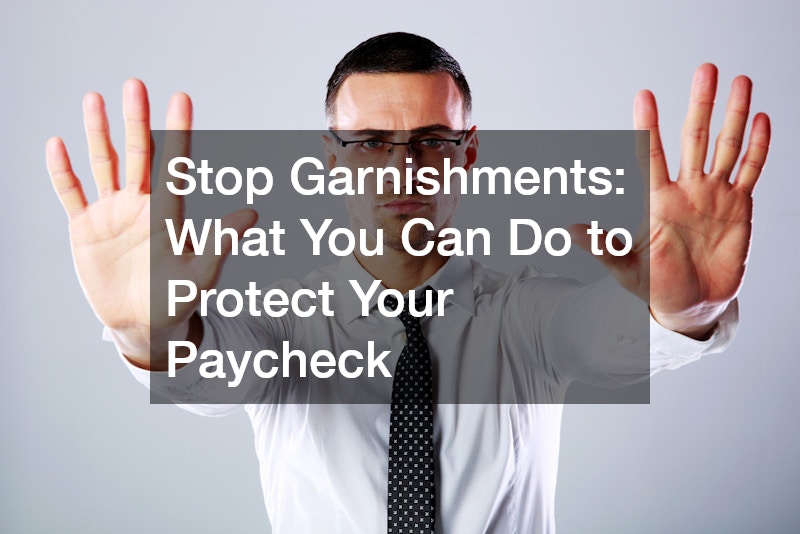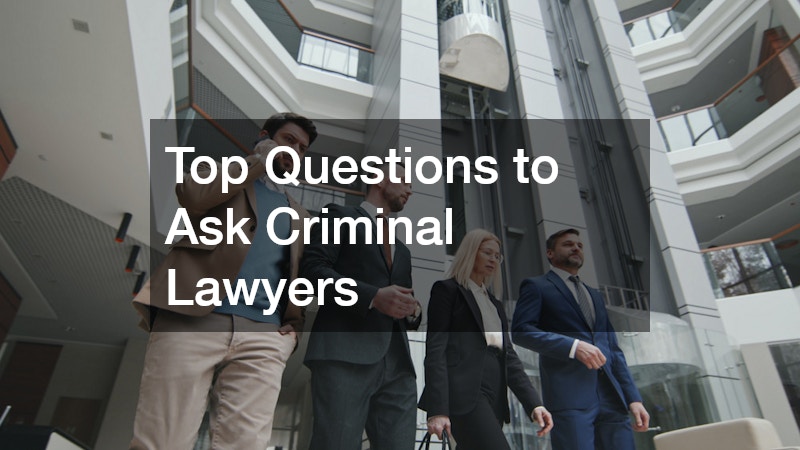How to Select the Right Lawyer for Your Case When Bail is Posted

Selecting the right lawyer for your case can make the difference between winning and losing. This is particularly true when you have a legal problem in a specific field of law that might not be understood by all lawyers.
All lawyers learn the basics like contract law, property law, criminal law, and tort law. But not every law student takes a course in bankruptcy law. Moreover, not every lawyer works with cases in these areas and develops an understanding of how to apply the law to real world situations.
For example, most law students learn that the bail clause in the U.S. Constitution prohibits ‘excessive bail.’ But unless the lawyer actually practices criminal defense, the law student probably cannot explain how bail bonds work or even how to arrange them.
Here are some ideas about how to select the right lawyer for your case:

Criminal Defense Lawyers
Criminal defense is the one field of law where you might not be able to choose your lawyer. The U.S. Constitution guarantees the right to an attorney in criminal cases. This means that if you qualify as ‘indigent’ according to local court rules, you can request a free public defender.
In most jurisdictions, this means that you do not get to pick your lawyer. Instead, you get the lawyer that is next in the rotation in the public defender’s office.
The decision to use a public defender is a personal choice. Some people prefer to hire a private lawyer even if they qualify for a public defender. Public defenders are often overworked and underpaid. Some people worry that the public defender’s office will not provide the level of representation they can get from a private lawyer.
On the other hand, public defenders have a lot of experience. They may handle hundreds of cases every year, and they know all the prosecutors and all the judges. These personal connections can give them insight into how to guide a case to a successful conclusion. Moreover, with all the costs involved in a criminal case, a free or reduced-fee lawyer allows a defendant to save money to pay the bail bonds office, as well as fines and restitution if the defendant is found guilty.
A criminal defendant will usually first need a lawyer at the arraignment and bail hearing. The arraignment is the court proceeding where the court informs the defendant of the charges. The court may request the defendant to enter a plea of guilty or not guilty at that time.
The court will also handle two other matters at that first appearance:
- The court will ask the defendant questions about income and assets to determine if the defendant qualifies for a public defender.
- The court will listen to arguments for and against bail and rule on whether to release the defendant until trial.
At this point, the criminal defense lawyer has a limited role and almost any lawyer will suffice. But after you arrange with the 24 hour bail company for your release, you will need to settle on the lawyer who will handle your case going forward.
In choosing the right lawyer for your case, keep in mind what the lawyer will need to do:
-
-
- Investigate: The lawyer will need to review the evidence gathered by the police. The lawyer will also need to gather evidence that shows that you did not commit the crime, or that no crime was committed. For example, police can often show probable cause for an arrest using the victim’s statement. But an investigation might reveal eyewitnesses who say that the victim misidentified you and that someone else committed the crime.
- Negotiate: The prosecution will probably approach the lawyer about a plea bargain. Depending on your case, a plea bargain will often give you certainty that you cannot get from a jury. You will need a lawyer to negotiate a plea bargain with the prosecution so that you get a fair outcome.
- Litigate: Even though the majority of cases end in a plea bargain, You should select a lawyer with litigation experience. If you cannot reach a plea bargain, your lawyer will need to poke holes in the prosecution’s case and present your defense to a jury.

-
Estate Lawyer
A lawyer who knows wills, trusts, and estates are critically important to your estate planning. When you select an estate lawyer, you should pick someone who has experience handling the type of property you have. For example, if you own investment property, you will want to find an estate lawyer who knows how to handle real estate.
Your estate lawyer will perform a few tasks for you:
-
-
- Discuss your goals: Bear in mind that an estate lawyer is not necessarily the same as an estate planner. An estate planner does not need to be a lawyer. Some estate planners are accountants or financial consultants. Whether you rely on your estate lawyer to help you plan your estate or you work with an estate planner and just use the lawyer to prepare the documents to put your plan into action, you will need someone who you communicate well with. You will need the estate lawyer to understand your goals and provide advice, so you can reach them.
- Prepare the documents: Based on your estate plan, you might need the lawyer to prepare a trust document or a will. These documents must meet certain legal requirements to be valid. You must pick a lawyer who can draft valid documents or you risk having a court invalidate your plan and substituting its own based on the law.
- Execute your estate: After your death, the lawyer or the law firm will need to assist the executor of your estate to carry out your wishes. Your lawyer may also need to act as the probate law attorney who shepherds the estate through probate court and overcomes any challenges to your estate plan.
-

Accident Attorneys
Personal injury law covers a lot of legal issues. As a result, you should look for an accident attorney who has experience with your legal issue. For example, not every personal injury lawyer handles medical malpractice cases. If you were injured as a result of medical error, you should probably hire an lawyer who has dealt with medical malpractice cases and, more importantly, has handled those cases successfully.
Accident claims also involve a lot of negotiating with insurance companies. Most cases settle without ever filing a lawsuit. You should hire an accident lawyer who has successfully negotiated settlements in past cases. You might also look for a lawyer who knows the insurers and claims adjusters. This might give the lawyer insight into an insurance company’s practices. These insights might help the lawyer settle your case faster or even bet a better settlement.
Accident claims require organization. A personal injury lawyer and the lawyer’s staff must keep track of your medical records, medical bills, wage records, time cards, police reports, witness statements, and other documents for your insurance claim. While you do not need to hire a huge law firm to avoid losing documents, you should make sure the lawyer has enough staff or an electronic document system that can handle the massive recordkeeping needed in an injury case.
A personal injury lawyer must have a plan for getting compensation in your case. Even though you may have suffered a grievous injury, suing an uninsured driver might result in zero compensation in your case. Your lawyer might need to investigate whether any other drivers were at fault for your accident, or if there were other circumstances that caused your accident. For example, if your vehicle rolled over, the lawyer might investigate whether the vehicle manufacturer was aware of the rollover risk or the tire factory manufactured defective tires.

Workplace Injury Attorney
Many people assume that all personal injury lawyers can handle a workers’ compensation claim. While there is substantial overlap between these two areas of law, they do involve different areas of law and require the lawyer to follow different procedures. As a result, you should check to make sure you hire a workers’ compensation lawyer for your workplace injury claim.
Under workers’ compensation, injured employees are guaranteed injury benefits. But in exchange, they lose the right to sue their employer for their accident. Thus, one of the main differences between workplace accidents and other accidents is that workplace accidents are almost never the subject of a lawsuit.
Another difference is that workers’ compensation benefits are limited. Instead of being entitled to lawsuit-style damages, a worker is only entitled to medical benefits and partial income replacement. This means that the expectations for damages are much lower.
If a claim is denied, a workers’ compensation lawyer does not have recourse to the courts. Instead, most states have a workers’ compensation board and staff of administrative law judges (ALJs). These ALJs hear cases and issue decisions like a judge, but their authority is limited to workers’ comp law. When you need to hire a workplace injury lawyer, you should ask about the lawyer’s record before the workers’ comp board and the workers’ comp ALJs.
Finally, workers’ comp claimants are subject to much more invasive investigations than personal injury plaintiffs. A workers’ comp insurer can ask for independent medical examinations and physical fitness tests to determine if you can return to work. By hiring a lawyer who knows workers’ comp rules and procedures, you can discuss how to handle these examinations and tests so you do not get tricked into waiving your workers’ comp rights.
Disability Lawyer
A disability lawyer has two main roles. The first is to help clients secure disability benefits. Depending on how you were injured and the nature of your injury, you may be entitled to disability benefits. The main sources of disability benefits include:
-
-
- The VA: The Department of Veterans Affairs provides disability benefits to military veterans with service-connected disabilities. Almost any injury or illness qualifies for benefits if it was contracted during military service or developed after discharge due to conditions experienced during military service. The advantage of VA disability benefits is they are paid for partial disabilities and are paid even if you are still working.
- Social Security: Social Security Disability Insurance (SSDI) is available to workers who paid into the Social Security system. To qualify for benefits, you must be totally disabled and unable to work. If you work or are capable of work, you cannot claim SSDI.
- Disability insurance: Some employers and unions provide disability insurance. These insurance policies can include short-term or long-term benefits Short-term benefits usually kick in immediately but only for a limited time. Long-term benefits usually have a waiting period, but are paid for much longer.
-
The other role played by disability lawyers is to help people with disabilities overcome access issues and discrimination. Under the federal Americans with Disabilities Act (ADA), public facilities must accommodate people with disabilities with elevators, ramps, and other accommodations.
The ADA also prohibits employers from discriminating against people with disabilities and requires them to reasonably accommodate disabled employees. For example, an employee in a wheelchair can request a desk closer to the entrance/exit. If the request is reasonable, the request must be accommodated.
Most people will go through life without ever hiring a lawyer. But when you need a lawyer, you should hire the right lawyer for your legal issue. Not all lawyers can handle every case.
Picking a lawyer in the right field of law is just the first step to finding the right lawyer for your case. You also need to understand the skills the lawyer will need to handle your case and select a lawyer with those skills. By matching the lawyer’s expertise and skills to your particular legal problem, you stand a much better chance of hiring the right lawyer for your case. And having the right lawyer working on your case might make the difference between a winning outcome and a losing outcome in your case.



